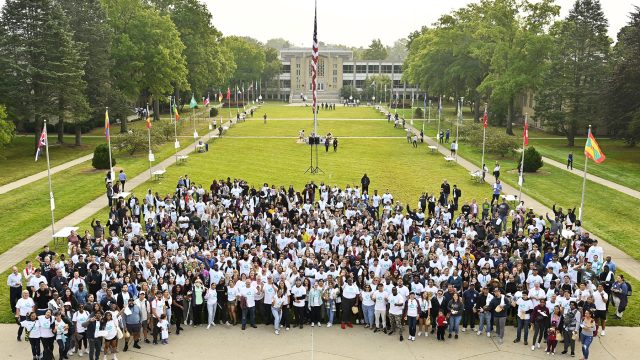What is the conscience, and what is its purpose?

The conscience is usually considered to be the human capacity to make personal moral judgments by distinguishing between what is right and wrong. I will examine some biblical passages that may help us gain a clearer understanding of the topic.
1. CONSCIENCE AND MORAL JUDGMENTS
The human capacity to make moral decisions is universal and assumes the existence of moral norms and principles that the individual, as part of a group, has accepted. The conscience does not formulate the moral principles, but uses them in making decisions. The principles come from culture, religion, family, or many other sources. The universality of the phenomenon indicates that humans are by creation moral agents, and that traces of the law of God are found in all societies (cf. Rom. 2:14-16). Sin, however, has distorted the moral perceptions of humans, making it necessary to enlighten them on the moral life (2 Cor. 4:1-4; Titus 1:15; cf. 1 Cor. 10:25, 26). For Christians the highest moral values are found in God’s revealed will, His law and its expression in the life, teachings, and the love of Jesus (1 Tim. 1:5; cf. 1 Cor. 2:16; 1 Peter 2:18). These provide the moral and religious grounding needed by the conscience to make correct moral judgments that express themselves in living “honorably in every way” (Heb. 13:18, NIV; cf. 1 Tim. 3:9). The universal tendency of the conscience to choose what is right hints at the work of the Spirit in the human heart prompting it to procure what is good (Rom. 9:1).
2. THE GOOD/CLEAN AND BAD CONSCIENCE
The conscience has another function that takes place after the moral decision is made. It evaluates the decision and either disapproves of it or approves of it. When we act against it, the conscience is defiled (1 Cor. 8:7), creating a feeling of spiritual uncleanliness and guilt. To have a good or clean conscience means that, after the evaluation of the moral judgment, the conscience does not rebuke the person (Acts 23:1; 24:16; 1 Tim. 1:5). In such cases the conscience testifies, together with the Holy Spirit, that we have enunciated that which is true (Rom. 9:1). Such phrases as to serve God “with a clear conscience” (2 Tim. 1:3, NIV) and to hold to “the deep truths of the faith with a clear conscience” (1 Tim. 3:9, NIV) means that the integrity of the religious and moral decisions that were made are afterward confirmed in the tribunal of the conscience; the conscience does not condemn them. Paul expresses the idea very clearly when he writes, “Our conscience testifies that we have conducted ourselves in the world, and especially in our relations with you, with integrity and godly sincerity” (2 Cor. 1:12, NIV).
3. THE CLEANSING OF THE CONSCIENCE
Knowing what is good and doing the opposite leaves the soul in a state of restlessness and inner pain that could be unbearable. In time, and as a mechanism of psychological defense, the conscience finally becomes indifferent and is silenced (2 Tim. 1:15; 1 Tim. 1:19). The bright side is that the conscience that accuses us can be cleansed or purified. Certainly the sacrifice of animals could not cleanse sinners, otherwise they “would no longer have felt guilty for their sins” (Heb. 10:2, NIV); they were “not able to clear the conscience of the worshiper” (Heb. 9:9, NIV). Now the blood of Christ cleanses “our conscience from acts that lead to death, so that we may serve the living God” (verse 14, NIV; 1 Cor. 10:29). This comes to full expression through baptism, and it is the gift of God’s forgiving grace (Heb. 10:22; 1 Peter 3:21).








